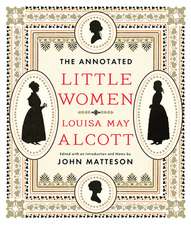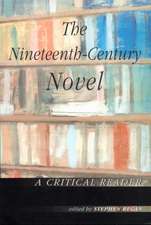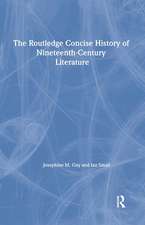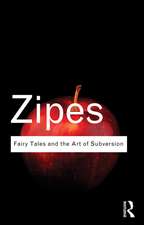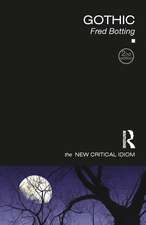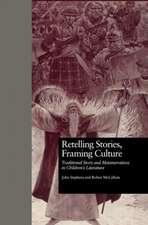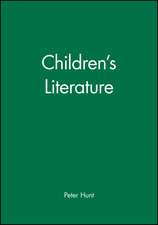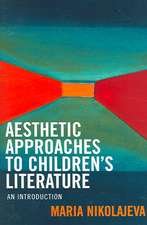Routledge Library Editions: Television: Routledge Library Editions: Television
Autor Variousen Limba Engleză Hardback – 9 mai 2013
Preț: 5182.43 lei
Preț vechi: 7733.91 lei
-33% Nou
Puncte Express: 7774
Preț estimativ în valută:
991.63€ • 1038.14$ • 820.53£
991.63€ • 1038.14$ • 820.53£
Comandă specială
Livrare economică 17-31 martie
Doresc să fiu notificat când acest titlu va fi disponibil:
Se trimite...
Preluare comenzi: 021 569.72.76
Specificații
ISBN-13: 9780415821995
ISBN-10: 0415821991
Pagini: 4392
Dimensiuni: 156 x 234 mm
Greutate: 9.32 kg
Ediția:New.
Editura: Taylor & Francis
Colecția Routledge
Seria Routledge Library Editions: Television
Locul publicării:Oxford, United Kingdom
ISBN-10: 0415821991
Pagini: 4392
Dimensiuni: 156 x 234 mm
Greutate: 9.32 kg
Ediția:New.
Editura: Taylor & Francis
Colecția Routledge
Seria Routledge Library Editions: Television
Locul publicării:Oxford, United Kingdom
Public țintă
Postgraduate and UndergraduateCuprins
American Television: New Directions in Television Studies Nick Browne (ed.). The Making of Channel 4 Peter Catterall (ed). Televising Democracies Bob Franklin (ed). Black Women in Television: An Illustrated History and Bibliography George Hill, Lorraine Raglin and Chas Floyd Johnson. Television News and the Elderly: Broadcast Managers' Attitudes Toward Older Adults Michael L. Hilt. Television and the Aggressive Child: A Cross-national Comparison L. Rowell Huesman and Leonard D. Eron (ed). The Language of Television: Uses and Abuses Albert Hunt. The Ideological Octopus: An Exploration of Television and its Audience Justin Lewis. China Turned On: Television, Reform and Resistance James Lull. Cable Television and the Future of Broadcasting Ralph M. Negrine (ed). Satellite Broadcasting: The Politics and Implications of the New Media Ralph Negrine (ed). Remote Control: Television, Audiences, and Cultural Power Ellen Seiter et al. (ed). The Future of Broadcasting: A Report Presented to the Social Morality Council, October 1973 Social Morality Council. Videology and Utopia: Explorations in a New Medium Alfred Willener, Guy Milliard and Alex Ganty; translated and edited by Diana Burfield. Television and Social Behavior: Beyond Violence and Children Stephen B. Withey and Ronald P. Abeles (ed). The Use and Abuse of Television: A Social Psychological Analysis of the Changing Screen J. Mallory Wober
Notă biografică
Multivolume collection by leading authors in the field.
Descriere
Reissuing works originally published between 1974 and 1999, Routledge Library Editions: Television offers a selection of scholarship covering the exploration of TV.
Recenzii
“The timely re-issue of the prescient Ethnoscapes series provides an invaluable contribution to current concerns about built and natural environments. The breadth of coverage of these books, includes public participation in environmental modifications, the impact of housing design on the quality of life, cross-cultural comparisons of placemaking, and the role of building aesthetics on well-being, across many countries and contexts adds up to a treasure trove of innovative research. Now more than ever we need the benefit of the insights and findings of these scholars and professional (many of course who are both) who, over three decades, have studied crucial aspects of interactions between people and their surroundings.”
Ricardo García Mira, Professor of Social Psychology, University of A Coruna, Galicia, Spain. Former Spanish MP.
“The reissued volumes in the Ethnoscapes series were ground- breaking when they first appeared and remain fresh today. These books are essential for understanding how design and the use of space has cultural and human meaning that “artificial intelligence” could never achieve. They offer a vital and timely antidote to mind-numbing apology for the appropriation of civic space and corporate reproduction of McMansions and shopping malls.”
Ben Wisner, Honorary Visiting Professor, University College London, UK.
“The physical aspects of our wonderfully complex world combine with social and psychological factors, to give a myriad of joys and sorrows accompanying our lifeworld activities. To make existence manageable, we need to find order within such chaos. As researchers of all types, but especially social scientists, we are driven to identify networks of causes and effects. This series provides excellent examples of such writing, concerning natural and built environments, from a host of scholars, representing a range of disciplines.”
Andrew Turk, Adjunct Associate Professor, Murdoch University, Western Australia.
“People interested and concerned about how we are interacting with and shaping our built and natural environments will find the insights and findings in this re-issued Ethnoscapes series of great value. Over more than 30 years this accumulated cornucopia of research reveals how important it is to understand the meanings and significance of many aspects of human- environment transactions. These include studies of user involvement in design, with its implications for place-making, as well as crucial explorations of the meaning of home and the role of environmental aesthetics for our wellbeing. Every volume opens new doors, often being the forerunners to major areas of study.”
Arza Churchman, Professor Emerita at Technion- Israel Institute of Technology, Haifa, Israel.
“The re-issue of the Ethnoscapes series provides everyone who cares about human-environment studies a wonderful opportunity to re-acquaint themselves with many groundbreaking efforts in the field. The series provides a wide range of explorations by researchers who have helped to make sense of persons in interaction with their surroundings, and contributed to inspired placemaking”.
Robert Gifford, Professor of Psychology and Environmental Studies, University of Victoria, British Columbia, Canada.
Ricardo García Mira, Professor of Social Psychology, University of A Coruna, Galicia, Spain. Former Spanish MP.
“The reissued volumes in the Ethnoscapes series were ground- breaking when they first appeared and remain fresh today. These books are essential for understanding how design and the use of space has cultural and human meaning that “artificial intelligence” could never achieve. They offer a vital and timely antidote to mind-numbing apology for the appropriation of civic space and corporate reproduction of McMansions and shopping malls.”
Ben Wisner, Honorary Visiting Professor, University College London, UK.
“The physical aspects of our wonderfully complex world combine with social and psychological factors, to give a myriad of joys and sorrows accompanying our lifeworld activities. To make existence manageable, we need to find order within such chaos. As researchers of all types, but especially social scientists, we are driven to identify networks of causes and effects. This series provides excellent examples of such writing, concerning natural and built environments, from a host of scholars, representing a range of disciplines.”
Andrew Turk, Adjunct Associate Professor, Murdoch University, Western Australia.
“People interested and concerned about how we are interacting with and shaping our built and natural environments will find the insights and findings in this re-issued Ethnoscapes series of great value. Over more than 30 years this accumulated cornucopia of research reveals how important it is to understand the meanings and significance of many aspects of human- environment transactions. These include studies of user involvement in design, with its implications for place-making, as well as crucial explorations of the meaning of home and the role of environmental aesthetics for our wellbeing. Every volume opens new doors, often being the forerunners to major areas of study.”
Arza Churchman, Professor Emerita at Technion- Israel Institute of Technology, Haifa, Israel.
“The re-issue of the Ethnoscapes series provides everyone who cares about human-environment studies a wonderful opportunity to re-acquaint themselves with many groundbreaking efforts in the field. The series provides a wide range of explorations by researchers who have helped to make sense of persons in interaction with their surroundings, and contributed to inspired placemaking”.
Robert Gifford, Professor of Psychology and Environmental Studies, University of Victoria, British Columbia, Canada.



















